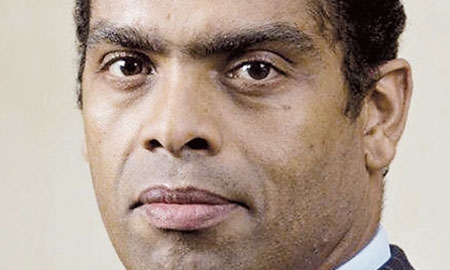BESA began operations in 2002. It’s now among the five biggest and most important banks of the country. What was the secret for this massive growth in such a short time? After we created BESA, many of the most important customers in the country transferred their banking operations to our bank and that’s where we put a lot of our effort, instead of spreading our attention across the so-called mass-market.
As a result of that, customers recognized that the bank had strong qualities, like confidence and confidentiality. We belong to an international group that was already well known. It is, after all, among the biggest Portuguese groups, with a grand tradition in the banking sector.
We also offer something else that’s very important, the strategy used in 2002 remains our strategy even now. That means that we remain focused on our objectives, and that’s key.
Another key had to do with our human resources policy, because we invest a lot in high-quality people, we provide them with a lot of training and now our staff is very focused on customer satisfaction. As a result, people with high-income rates who used to receive bad service from other banking institutions began to see the bank as an alternative for better service.
We were also the first bank to launch a market room that works directly with England and that allows customers to access services that other banks do not offer.
In terms of international transactions, letters of credit, opening of letters of credit we are the most efficient bank in Angola.
Angola is a country that imports a lot and so people and businesses often have to open letters of credit. To do that, companies want to use more efficient banks.
We really stand out in this segment and for that reason the bank grew in terms of the operations it carries out and not in terms of customers. We grew more than the other banks when it comes to good customers too.
BESA was the first bank to do international transactions regarding the import of goods, it was the first in terms of private banking, the bank’s funding is secure, we have very loyal customers and with these services we become the bank with the best pricing.
All this was important for our growth. In 2009 we grew 80%.
‘WE BELIEVE THAT ANGOLA WILL ENJOY AN ECONOMIC GROWTH RATE IN THE DOUBLE DIGITS IN 2011. WE HAVE OUR OWN STRATEGY FOR ACHIEVING THESE OBJECTIVES’
‘BESA WAS THE FIRST BANK TO DO INTERNATIONAL TRANSACTIONS REGARDING THE IMPORT OF GOODS’
ALVARO SOBRINHO,
CEO of Banco Espirito Santo Angola
|
Why has the bank invested so much on information systems?From the information point of view, because we plan to grow as a financial group, we plan to do leasing, investment banking and will have an insurance company for all these segments, we want an integrated system that is able to manage them all instead of multiple information systems.
We in Angola have a very big risk in the banking system because there is only one information system that all banks use – Promosoft System, which costs $500,000 while ours cost millions of dollars, so you can start to see the difference.
A country cannot depend on only one information system. Also it is a non-proprietary system, which means that if one day the owner decides to close, the system also closes in Angola.
We invested in an information system that costs $35 million, which is called Flexcube by I-Flex Solutions, whose main shareholder is Oracle. I-Flex is used on stock exchanges and by the biggest banks in the world, such as JP Morgan, Barclays Bank, etc.
We spent two years with a team in India preparing our system. Right now we have the most powerful information system in Angola and consequently we have more ability to create new products that we can then offer our customers.
What can you tell us about the bank’s growth outlook, and about its plans for the future? We have a strategic program with three main points with which we have forecast average growth levels of not less than 50%. To begin with, we believe very much that this is possible because in Angola there are still many people who don’t have bank accounts.
Secondly, we are planning to begin offering a number of services that were not previously available in Angola, such as leasing, investment funds and factoring, which are also very important for income generation. In addition to that we are now counting on the opening of the stock exchange.
We believe that Angola will enjoy an economic growth rate in the double digits in 2011.
Internationally speaking, big international institutions believe in our objectives because during seven years and even in 2009 we have always been able to outperform our objectives, systematically speaking. The shareholders of the bank always wanted more ambitious objectives.
In 2009 we had a forecast that, because of the crisis, was very low because we believed that the bank would grow very little, approximately 10%. That was for the group as a whole. For BESA the growth forecast was 30%.

0 COMMENTS